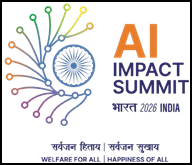Context:
Thirty years after the adoption of the Beijing Declaration and Platform for Action, India has made significant legal and policy strides in promoting gender equality. However, the dual crises of climate change and migration are now threatening to undo progress—particularly for rural women and girls. A didi from Kanker, Chhattisgarh, poignantly sums it up: “This generation was supposed to do better.”
Gender and Climate
- Climate-Induced Gender Vulnerability:
- Women and girls, especially in rural India, are disproportionately affected by climate change.
- Climate stressors such as extreme heat, droughts, and resource scarcity deepen existing gender inequalities, leading to health issues, migration, and even school dropouts.
- Health and Livelihood Impacts:
- Anaemia affects over 50% of pregnant women in India, worsened by food insecurity.
- Climate change is linked to increased intimate partner violence—rising 8% with each degree Celsius.
- Non-farm livelihoods, where many women are employed, face up to 33% income losses due to climate disruptions.
- Underrepresented in Policy and Finance:
- Just 6% of climate policies mention women; only 1% consider the poor.
- Climate budgets often result in greenwashing or use women as conduits rather than decision-makers.
Women as Climate Leaders
- Adaptation and Resilience:
- Women preserve traditional climate-resilient practices and play key roles in sustainable agriculture.
- Women-led collectives are often first responders in climate disasters and essential to ecosystem protection.
- Rural women prioritize issues such as forest-based livelihoods, migration, and safety from conflict.
Strategic Recommendations
- Policy Enhancements:
- Strengthen the gender-climate link in the Beijing India Report 2024.
- Implement gender-responsive climate action and robust data systems to track gendered impacts.
- Ensure that NAPCC and SAPCC plans reach grassroots communities, emphasizing women’s participation.
- Inclusive Climate Financing:
- Promote gender-audited climate budgets that empower rather than exploit.
- Encourage private sector investment in women-led green enterprises and climate technology access.
- Expand green funds for women-driven innovations in climate resilience and mitigation.
- Community Empowerment:
- Establish climate support hubs for disaster response, health, safety, and migration risk awareness.
- Host inclusive climate consultations and support women’s leadership in energy, agriculture, and governance.
- Prioritize non-farm livelihoods and skill-building to mitigate climate-linked job losses in agriculture.
- Multi-Stakeholder Collaboration:
- Foster partnerships across government, civil society, private sector, and academia.
- Focus on knowledge sharing, capacity-building, and recognition of women champions in climate resilience.
India stands at a critical intersection of climate action and gende

















